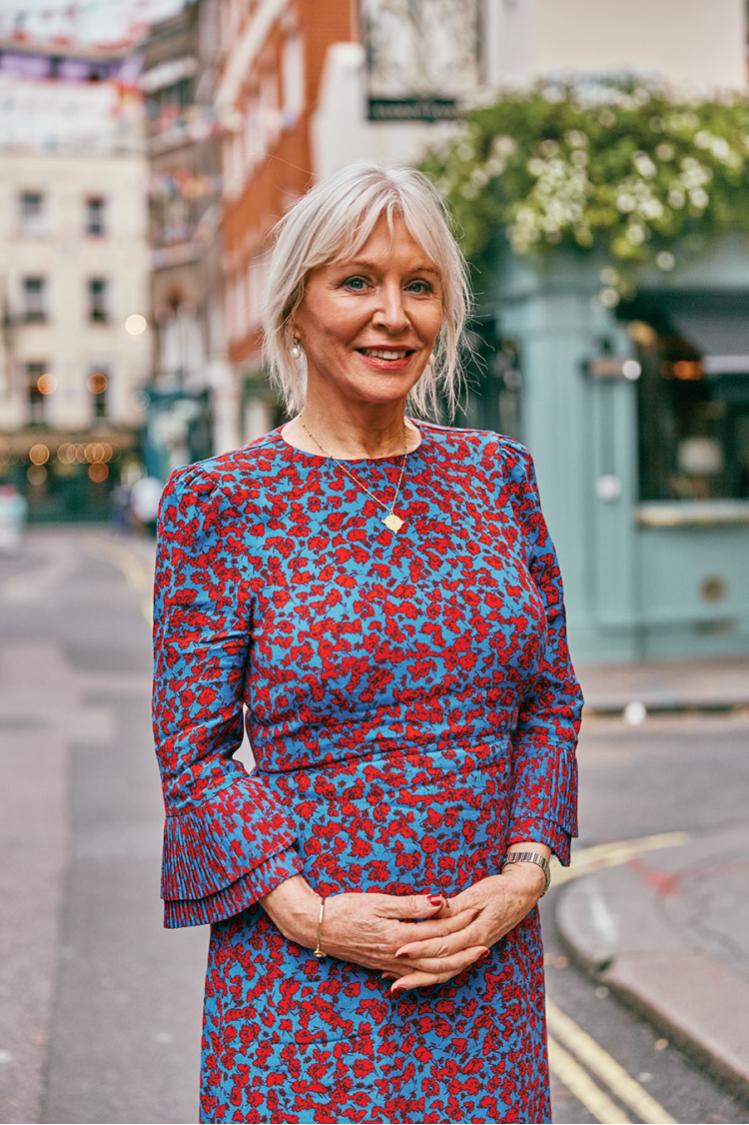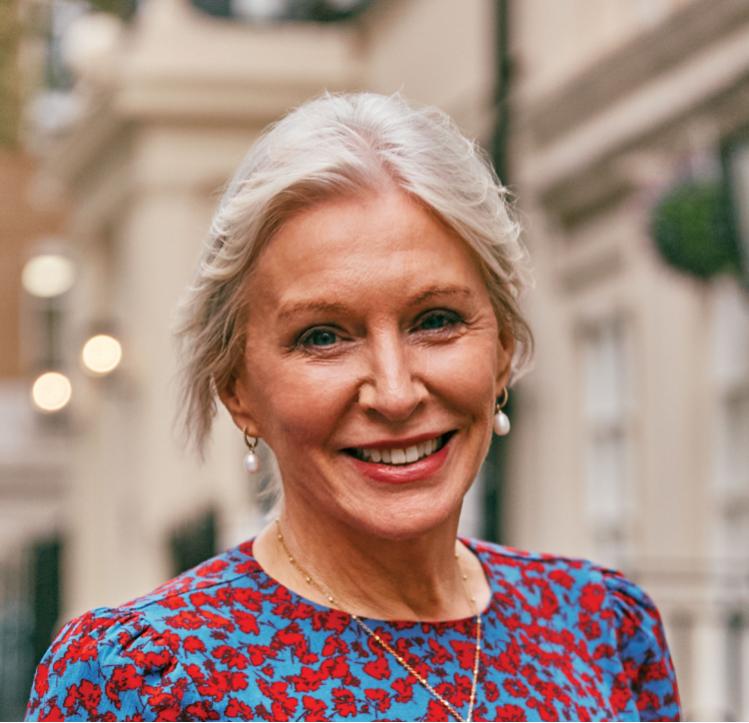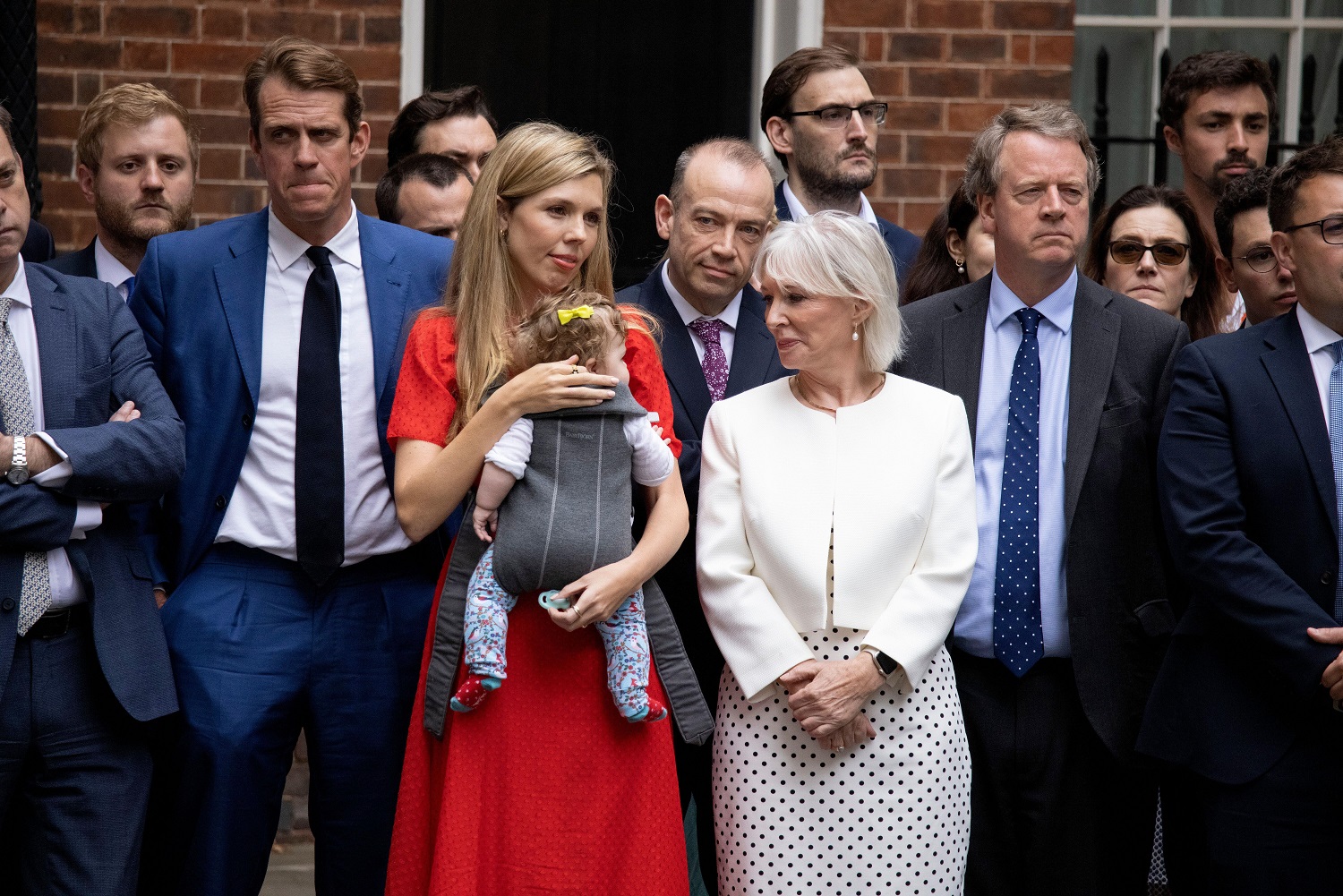The Nadine Dorries interview: "If I didn’t have a thick skin, I would be dead by now"
(Photography by Baldo Sciacca)
12 min read
Newly returned to the backbenches, former culture secretary Nadine Dorries tells Tali Fraser there are plenty more political scraps to come - and that she’s still Boris Johnson’s biggest cheerleader. Photography by Baldo Sciacca.
Nadine Dorries is in high spirits, despite gearing up for her first Westminster battle after a return to the backbenches. We meet in 5 Hertford Street – the private members club favoured by Tory circles – the day after former prime minister Boris Johnson hosted his supporters for an evening of thank you drinks.
“Oh my god, it was really upbeat,” she says. “You can always tell a successful party, can’t you. There was a huge crowd, everybody loves him.” The former culture secretary was one of Johnson’s most loyal and steadfast backers – and would defend him to the hilt, famously saying that he would only “probably” lose her support “if he went out and kicked a dog”.
Dorries, 65, says the mood at the party wasn’t morose following the failed bid to #BringBackBoris after Liz Truss’s resignation, insisting: “There was a general ‘air’ in the room and certainly people saying he will be back. He will be back. I don’t know when, I don’t know how, I don’t know whether it will be 10 years or 10 months.”
First, though, she says Johnson needs to “recoup” – being prime minister is an expensive job: “I used to say that to be a prime minister you need to be rich because it costs you a lot of money. It is part of the role to invite people to Chequers, but you have to pay for every cup of tea served out of your own pocket.” She adds pointedly: “So unless you are a multimillionaire, it is a problem.” Our current Prime Minister, Rishi Sunak, and his wife are worth around £730m.
Dorries is not forthcoming with a glowing review of the new Sunak regime, even using air quotes around “government” the first time she refers to his administration and branding it “gun shy”.
 (Photography by Baldo Sciacca)
(Photography by Baldo Sciacca)
She becomes most animated when discussing the Online Safety Bill, which was due to introduce greater regulation of the Wild West that is harmful internet content but appears set to be watered down under new Culture Secretary Michelle Donelan. “The government now, and certainly my successor, is going to have a lot of explaining to do on why she thinks that posting, encouraging people to self-harm, is something that should be allowed to happen,” she says bluntly.
Legal but harmful, a controversial but central clause in the legislation, as composed under Dorries, is set to be dropped – and she is frustrated. It would have required social media companies to address content that is dangerous but not illegal, like promoting suicide or self-harm.
“There is absolutely no reason whatsoever why the bill needs to be altered in any way. Mainly because all of the difficult and contentious stages of the bill, including legal but harmful, have already been passed. It’s already through. Our own party voted for it,” she says.
Dorries is clear that she plans to challenge any changes – and there is already fighting talk: “Michelle has been in the job five minutes and does not understand enough about it.”
She believes that individuals now in government and No 10 are paying too much attention to the views of a few right-wing men, citing fellow Conservative MP David Davis and The Spectator editor Fraser Nelson as examples, “but the country isn’t right wing!”
Michelle has been in the job five minutes and does not understand enough about it.
A major motivating factor for pressing forward with the legislation was the experience of parents such as that of the Russells, whose daughter Molly, 14, took her own life after viewing online content a coroner ruled “shouldn’t have been available for a child to see”.
“[The bill being watered down] makes me feel pretty rubbish,” Dorries says. “Because I can tell you what Oliver Dowden [her predecessor at the department] said to me when I took over the job. He said: ‘This is a horrible bill, kick it into the long grass.’ And I thought to myself, no, because I’m the person who would have to explain to Molly Russell’s parents, to all of those parents who have suffered the loss of their children, and the parents of all those children who have been damaged.”
During her time at the Department for Digital, Culture, Media and Sport (DCMS), Dorries spent three or four hours each day working on the bill, talking to charities, social networks and parents, and attempting to persuade those inside No 10. “I had to convince everybody, from the business managers, the leader of the House, the chief whip and the policy officials in No 10.” She thinks Donelan should be doing the same, and challenging No 10.
Peers, Dorries says, are going to pick up where she believes the government has failed; she knows a number who are prepared to take up the cause. “When this bill goes to the Lords they will regard it as a blank piece of paper because it has been watered down so much. There will be one mother of a massive fight,” she states confidently.
 (Photography by Baldo Sciacca)
(Photography by Baldo Sciacca)
It is not just the Lords who are preparing to kick back, according to Dorries; female Conservative MPs are galvanising, too. “The women in my party will, for want of a better word, kick off about this,” she says.
Like many of her female colleagues, she is all too familiar with the online abuse women MPs face, having received death threats herself. She has a rule that she will read only the first five responses to any of her tweets – and will always block the first two accounts to say something rude. Although she says this is not part of her driving force behind the Online Safety Bill, it does affect her.
“Oh my god, listen, if I didn’t have a thick skin, I would be dead by now,” Dorries says candidly. “I mean, the abuse, the snobbery I get because I’m a female, I’m blonde, I’m 65, I come from a working class background.”
It is a background that shaped her politics. Dorries had a difficult childhood, growing up on a council estate in Breck Road, Anfield, with her mother, Sylvia, father, George, and younger brother, John. Her parents later separated. She recalls having to hide from the rent man, going without food and not getting presents at Christmas.
Her father suffered from Raynaud’s disease, brought on by poor circulation, and had his toes amputated, which meant leaving his job as a bus driver.
Dorries found him dead when he was 42 and she was 21 and working as a nurse. She had visited him at the start of a week of night shifts but when she came back, she couldn’t get into his home. “He had been dead for seven days and I found him. It was hard. It was very hard,” she says.
Every day I’m scared of losing someone I love.
Soon afterwards, Dorries had to deal with two other sudden family deaths when her brother died aged 26 in a road accident, followed by the suicide of their close cousin, Clifford; they still affect her today. It is one of the only moments she struggles for words: “My brother... that was terrible… I had these three sudden, unexpected losses quite early in my life.
“Every day I’m scared of losing someone I love. Whether it’s your daughters [she has three] every time they go out or they go on holiday. You never rest. You’re never 100 per cent calm or relaxed. It’s like a post traumatic thing, actually. Like when the doorbell goes and you’re not expecting someone – I hate journalists phoning me when I don’t have their numbers on my phone. Or if you see a police car going past the house and it slows down, your heart still begins to race faster. It never goes.”
Dorries left school at 16 and began training as a nurse at 18, only to be stunned at how little she was paid. “It was not eating money,” she says. She and her friends took to accepting dates to get a meal, going to the Sunrise Restaurant, a Chinese restaurant in Warrington, “literally so you could get a Chinese meal and someone would buy the food for you”.
Were any of the dates good? “No. Actually, no, I’m not going say that. They were all gentlemen…” Why the swift change of answer? “Well, Paul [her future husband], was actually one of my dates to the Sunrise Restaurant.”
 Nadine Dorries with Boris Johnson's wife, Carrie, on the day of his resignation (Alamy)
Nadine Dorries with Boris Johnson's wife, Carrie, on the day of his resignation (Alamy)
Their first date was in 1976 and they married in 1984. The couple went on to have three children together but split in 2012. “Politics kind of bust us up a bit,” she says. “It was just horrendously difficult. I moved down to London for work. He was at home. It just took its toll.” They later got back together but he was diagnosed with stage four bowel cancer in February 2019.
Dorries and their family nursed him at home and he died that June. Paul had been a major influence on her decision to go into Conservative politics. “The main reason I became a Tory was Right to Buy, which meant my mum could buy her council house,” she tells me. “And Paul. My husband was a big Thatcherite. He was a miner and saw the damage that Scargill and others caused.” Although by the time he died, “he was erring more towards Corbyn”.
Dorries’s family is now all women – except for her sons-in-law – with her mother, three daughters and a granddaughter all exceptionally close. “We are a separatist household,” she jokes. “My girls are very lively and very opinionated… I don’t know where they get that from.”
Children are an important influence on the way she views politics. Discussing Elon Musk’s takeover of Twitter and what that could mean for the Online Safety Bill, she says: “He’s a father. And as a father I would think that you would possibly understand the dangers that the internet can present to children and young people.”
It is important to Dorries to have a support network. But for a woman who once called David Cameron and George Osborne “two posh boys who don’t know the price of milk”, that network includes some rather upper-class friends, like Jacob Rees-Mogg and the Johnsons.
I could ring Boris in the middle of the night if I had a problem and I know he would be there for hours talking to me.
While her devotion to the former PM attracts curiosity from some circles, she says they have a genuine affinity. “I could ring Boris in the middle of the night if I had a problem and I know he would be there for hours talking to me. I had breakfast with him the other morning. Him and Carrie, I would count them both as good friends.
“I hate the whole: ‘Oh she must fancy him’. I mean, I am a grandmother! Get over it. I’m a grandmother and, actually, I love Carrie as much as I love Boris.” (Dorries and Johnson are only six years apart in age.)
She credits Carrie for being “an absolute rock for Boris through all the trouble of being removed,” a defenestration which brings sour memories for Dorries. After Johnson stood down she called Sunak “a backstabber”. Now, she says, “my party has got to unify or die”.
How much Dorries is doing for unification is debatable. She turned down Liz Truss’s offer of a job multiple times. Does she think Truss got the backing she needed from the party or was it her own policies that caused her downfall?
“I think there were a lot of things at play,” Dorries says mysteriously. “If they hadn’t got her for that [the mini-Budget] they would have got her for something else.” Does that mean Dorries believes there were manoeuvres from the Sunak camp? “I probably shouldn’t say,” she says in a moment of restraint.
If joining Sunak’s Cabinet is off the table, what of rumours she might join the Lords in Johnson’s resignation honours?
I’ve sold nearly three million books. I’m only going to write a political book if it is going to fly off the shelves!
Has she heard anything? “So, no”, she says initially, but adds, “I was told I would probably get a letter if I was nominated, asking me whether I would be inclined to accept it. I haven’t received one.” Would she be so inclined? “I will make the decision if I ever get the offer. You never know, I might get home and there is a letter waiting!”
Until the letter drops, there is a secret project she is working on, but she can’t reveal details, and she plans to do “quite a bit more television”.
Along with Emily Sheffield, Cameron’s sister-in-law, Dorries recently filled in for Piers Morgan on TalkTV to negative reviews after she stumbled and conceded on air: “I completely messed that up.”
However, Dorries says: “I did enjoy doing it. It was a learning experience for me. I just flew into the studio and was put in front of the autocue. They did no rehearsal. It was kind of a baptism of fire.”
Her most famous television appearance will always be her stint on I’m a Celebrity, an experience she now has in common with her former cabinet colleague, Matt Hancock. Dorries spoke to him as he landed in Australia, where he went into a five-day lockdown before entering the jungle. “He will throw himself into it with full enthusiasm,” she says. “He said he wants to engage with the public …he’ll be lucky to be quoted for 90 seconds per episode and there will be no engagement because it isn’t actually about Matt.”
Unlike Hancock, Dorries, a best-selling author, has no plans to write a memoir.
“I might write a book that’s political,” she teases, however, “political books, written in the true political style, sell about 40,000 copies. That’s not my bag. I’ve sold nearly three million books. I’m only going to write a political book if it is going to fly off the shelves!”
